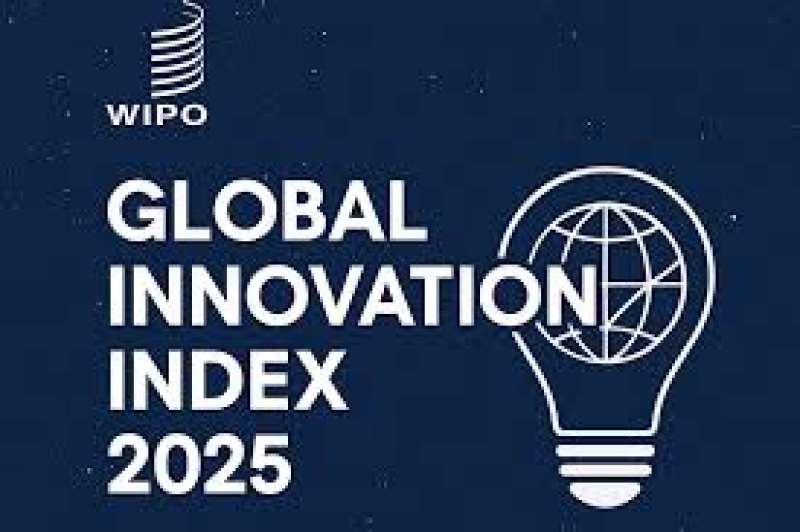- UAE Suspends Visas for Bangladesh, Eight Other Nations |
- Young disabled people of BD vow to advocate for peace |
- World Leaders Urged to Defend Human Rights and Justice |
- Vegetable prices remain high, people buy in small quantities |
- Off-season watermelon brings bumper crop to Narail farmers |
Bangladesh Ranks 106th in Global Innovation Index 2025

Bangladesh has been ranked 106th out of 139 economies in the Global Innovation Index (GII) 2025, published recently by the World Intellectual Property Organization (WIPO), placing the country once again in the lower tier of the global innovation landscape.
Although Bangladesh remains among the least innovative nations, the report reflects a gradual, if uneven, improvement over recent years. In 2020, the country was positioned at 116th, before climbing to 102nd in 2022. Its current placement shows a slight setback, yet it also underscores Bangladesh’s continuing struggle to build a strong innovation ecosystem despite significant economic progress.
The index, regarded as the world’s most comprehensive benchmark of innovation performance, evaluates nearly 80 indicators across areas such as research, education, infrastructure, business environment, market sophistication, and creative outputs. While Bangladesh’s overall score stood at 21.0 points, the findings reveal both areas of strength and serious weaknesses in the country’s innovation profile.
One of the most encouraging aspects of the report is Bangladesh’s fast-paced productivity growth, which averaged 4.5 percent annually between 2014 and 2024. WIPO highlighted the country alongside India, as well as African economies like Burkina Faso, Kenya, and Rwanda, as examples of nations where rapid productivity gains could have significant implications for poverty reduction and global development. For a densely populated country like Bangladesh, such growth has the potential to create a broader foundation for economic resilience and opportunity.
Yet the overall picture remains mixed. The report found that Bangladesh performed comparatively better in areas such as infrastructure, market conditions, and creative outputs, signalling that the country is making headway in connectivity, digital access, and cultural industries. However, it scored poorly in human capital, research, and business sophistication, exposing the chronic weaknesses in education, low investment in research and development, and limited collaboration between universities and industries. These deficiencies, the report suggested, remain major barriers preventing Bangladesh from translating economic growth into sustained innovation-led development.
The global ranking itself paints a familiar picture of innovation powerhouses dominating the top tier. Switzerland once again claimed the number one position, followed by Sweden, the United States, South Korea, Singapore, the United Kingdom, Finland, the Netherlands, Denmark, and China. At the other end of the spectrum, Niger, Angola, Congo, Venezuela, and Mali ranked at the bottom, struggling with instability, weak governance, and poor investment in innovation infrastructure.
For Bangladesh, the findings are both a caution and an opportunity. While the country’s gains in productivity signal underlying dynamism, its weak performance in education, research, and private-sector innovation means much more work lies ahead. Experts argue that greater investment in research institutions, a stronger focus on quality education, and deeper integration of businesses with global markets will be essential if Bangladesh is to climb further up the innovation ladder.
In an increasingly knowledge-driven global economy, the challenge for Bangladesh is no longer just about sustaining growth but about transforming that growth into innovation-led progress that can create long-term competitiveness. The GII 2025 ranking serves as a timely reminder of that unfinished task.

